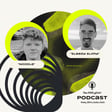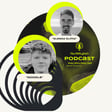
How Graphene Innovation and Serendipitous Invention Shape Industry Collaboration : pipe podcast ep 9
In Episode 9 of the Pipe gDAO Podcast, we explore graphene innovation and its role in bridging academia and industry through cutting-edge initiatives like the Graphene Engineering Innovation Centre (GEEK). Using the metaphor of banging rocks together, we delve into the challenges of early-stage university research commercialization, highlighting how serendipitous invention has shaped groundbreaking discoveries.
Discover how technology transfer offices can support researchers in validating and funding university startups, and learn why collaboration between universities and industries is essential for driving innovation. We also discuss the importance of creating pathways from ideation to implementation, leveraging resources like PIPE and GEEK to foster sustainable material innovation.
Whether you’re interested in strategies for funding university R&D, the role of Web3 jobs in commercialization, or how to overcome hurdles in turning academic ideas into impactful products, this episode offers actionable insights and engaging stories from the frontlines of innovation.
Banging rocks together is species defining... (linkedin.com)
thepipegdao | Instagram, Facebook | Linktree
This podcast is for informational and educational purposes only and does not constitute financial, legal, or investment advice. Views expressed are those of the hosts and guests and may not reflect those of the PIPE gDAO or its affiliates.
Investing in blockchain, DAOs, and tokenized university research involves significant risk. Do your own research and consult qualified professionals before making investment decisions.
PIPE gDAO makes no guarantees about the accuracy or completeness of information presented and is not liable for any losses arising from its use. This is not an offer or solicitation to buy or sell any financial product.
Hosts and guests may have financial interests in the projects discussed.


